Hoka is back with the second iteration of their race-ready, carbon-plated trail shoe, the Tecton X. After feedback on some issues runners found with the first version, Hoka made some slight adjustments to the fit of the Hoka Tecton X 2 that make it a great option for faster days.
Hoka Tecton X 2
Release Date: April 2023
Price: $225
Weight: Men’s 8.8 oz, Women’s 7.4 oz
Drop: 5mm (Men’s 32mm/27mm, Women’s 30mm/25mm)
Sizing: True to size
- Rundown: The Hoka Tecton X 2 is a fast, light, and responsive shoe built for most trails. The re-engineered Matryx upper secures your foot safely for higher speeds on most types of terrain.
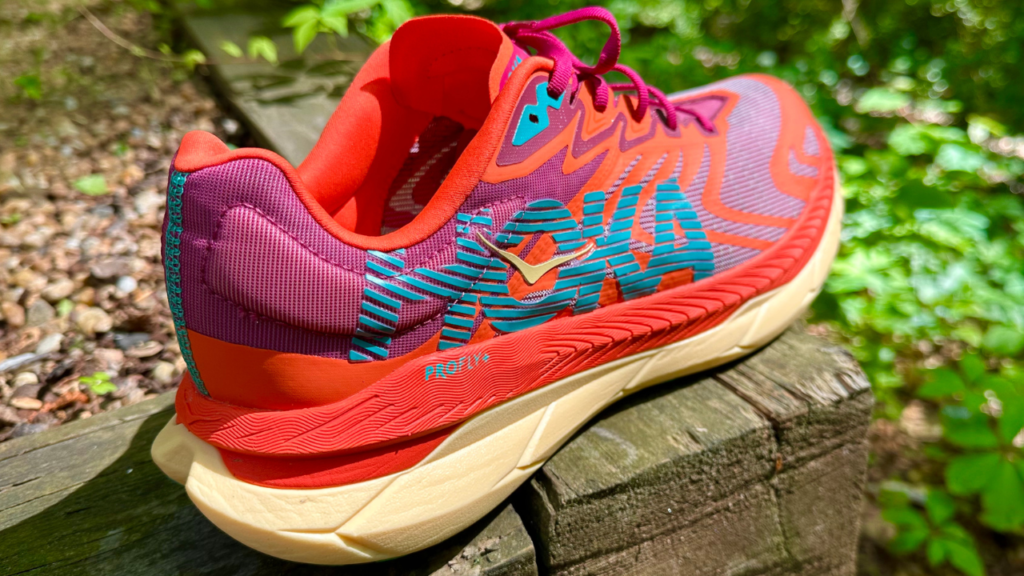
Midsole
Hoka made no changes that I’m aware of to the midsole of the Hoka Tecton X 2 (in comparison to the first model), but this is a good thing as the midsole of the shoe is what makes it special. The construction is what Hoka calls their Profly-X midsole, consisting of a lower layer of Hoka’s CMEVA foam with a softer layer of foam on top. This combination creates a propulsive yet cushioned base for runners. CMEVA foam is typically a bit sturdier and more durable than other foams and gives the shoe its responsiveness.
The upper layer of foam is a bouncier ride which I found noticeable in the shoe. Some carbon racers (especially on the trail) lose that soft feel with the introduction of a carbon plate, but I can’t say the same about the Hoka Tecton X 2. I was pleasantly surprised to find that the shoe felt similarly soft to the classic Hoka Speedgoat.
The Hoka Tecton X 2’s dual carbon fiber plates provide the extra propulsion to this shoe. The parallel plates (which are unique to HOKA) provide some performance benefits that other, single-plate shoes don’t offer. Besides a speed benefit, the dual plates offer off-plane support that naturally moves with the foot. The plates are divided down the middle and cross in the rear of the shoe, giving the ‘X’ formation you find in the name. The dual plate allows for the midsole to move laterally with your foot over uneven terrain. It also adds some flexibility to the shoe, which isn’t common among single-plate shoes.
The midsole is extremely light and durable. The carbon plates offer a natural rock plate and added foot protection at a much lower weight cost. You’ll find that this midsole is soft and cushioned for long distances, but responsive when you give some energy. The dual plate technology makes the shoe feel like it doesn’t have a plate, which could be a pro or con, depending on the person.
Upper
The upper was the hottest topic of the first iteration of the Tecton X, with runners dissatisfied with the flimsy material and questionable toe box. The Hoka Tecton X 2 returns with a newly created Matryx upper that provides a similar feel to the first but provides a more secure hold on your foot without any bunching around the laces and tension points on the shoe. The upper is light and secure, with enough stretch to accommodate your foot as it moves around in the shoe during output.
The lacing system sits a bit lower on the top of your foot than the first version, but locks into a comfortable heel cup. I haven’t noticed any slip in the heel, likely due to the additional padding Hoka added which wraps around your heel to secure it in place.
Additionally, the toe box is slimmed down to a slightly narrower fit. The toe plate is minimal but protective. The upper material is light enough that you should be able to shed water on those wetter spring days. Over nearly 100 miles of use, I haven’t noticed any visible or performance differences in the upper. The new Matryx hugs your foot well while maintaining just enough flexibility to allow for natural movement.
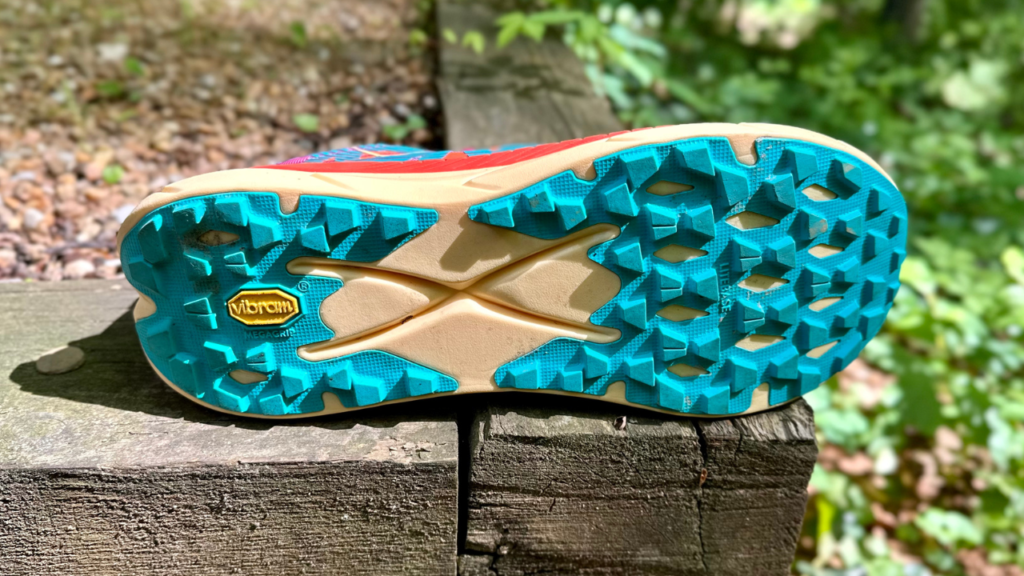
Outsole
The outsole and lug pattern remain pretty similar to the first version. Hoka went with a Vibram Litebase pattern that is separated into two parts, a typical setup for a racing shoe to maximize flexibility in the midfoot. The lug depth of 4mm is enough for most terrain. I was impressed with the grip in a variety of conditions and the rubber has shown no signs of wear yet.
With the minimal approach to the outsole, I’ve been surprised with the performance on steep and loose trails in the foothills of Salt Lake. I was skeptical of the shoe’s ability to perform on vert but have loved them for any angle so far. I wouldn’t use these shoes for the muddier days, as I found that the lugs tend to hold onto stickier mud and aren’t deep enough to maintain traction.
Additionally, these shoes wouldn’t perform super well on technical terrain. However, for what I would suspect is most trail days for most people, you can’t go wrong with the Hoka Tecton X 2. This shoe is very stable for a plated shoe and doesn’t give the feeling of being out of control at higher speeds.
Is the Hoka Tecton X 2 wide foot friendly?
Yes. Hoka in general is a wide-foot-friendly brand. The slightly narrower toe box makes this shoe land in the “medium” range for me. Additionally, the upper allows for some stretch and comfortability for wider feet.
Is the Hoka Tecton X 2 worth $225?
This is a loaded question for the Hoka Tecton X 2. In a day and age where “super” shoes are consistently priced at $200-$250, this shoe certainly justifies the price tag. It will perform on race days but isn’t limited to fast-paced running.
The Profly-X midsole feels soft and responsive on the easier days, making this a versatile shoe that can go fast. Additionally, the dual plate technology makes this shoe naturally a more accommodating super shoe compared to single plate counterparts. Coupled with the outsole durability, the Tecton X 2 should last you several hundred miles. If you’re a serious runner who doesn’t mind spending money on quality gear, these shoes are worth it.
Cons
With any carbon-plated shoe, the ability to perform on technical terrain is in question. I wouldn’t take the Hoka Tecton X 2’s on any higher alpine scrambles or routes with precarious footing. Naturally, these shoes want to remain on a relatively stable trail, which could limit their use.
Although I enjoy the stability a dual plate brings to the shoe, it somewhat lacks the quick “snap” feel of a traditional carbon racer. This means that despite the propulsion the plates will offer, you might not feel the snap. The crossing design of the plates in the heel also doesn’t feel super necessary and can lead to some weird response if you land on your heel, but you typically wouldn’t experience this if you’re not on technical terrain.
The price is an obvious con, but unfortunately, it may be the new reality for carbon-plated trail shoes.
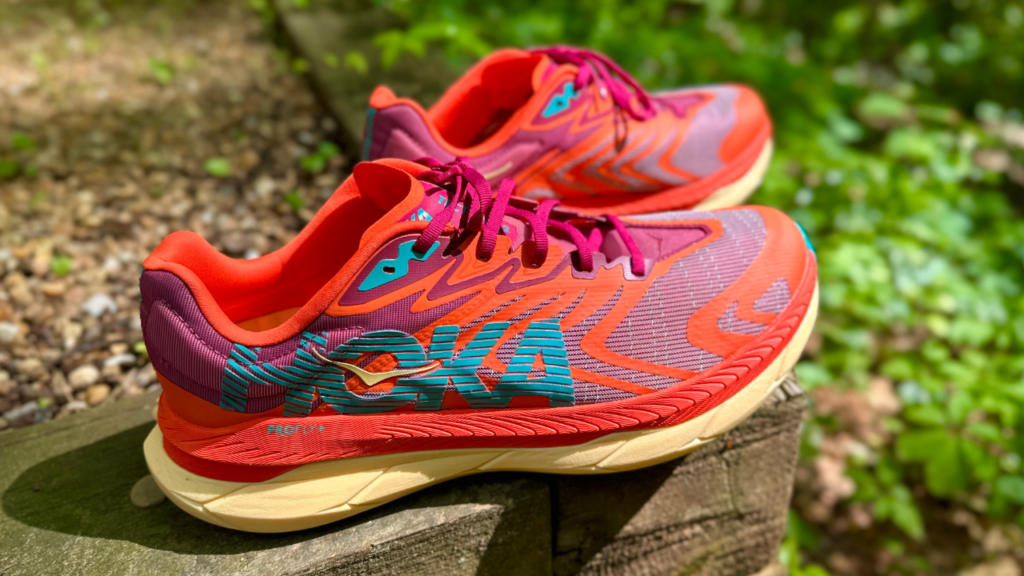
Hoka Tecton X 2 Summary
The slight but noticeable updates to the Hoka Tecton X 2 make this shoe the perfect trail racer that Hoka wants the line to be. This shoe offers the patented Hoka cushion with the responsiveness and propulsion of a plated race shoe.
This shoe performs best when moving fast through low to intermediate terrain. Despite the “race” focus of a carbon shoe, the Hoka Tecton X 2 is comfortable enough to take out on your long, slow days when you want a little extra pep in your cruiser miles. The outsole provides super light but trustworthy traction that will handle pretty much anything aside from deep mud.
The Tecton X 2 lives up to the hype and is a classic example of a shoe brand addressing complaints without altering what makes the shoe good. If you’re looking for a plated shoe that can do both everyday training and race speeds, the Tecton X 2 is for you.

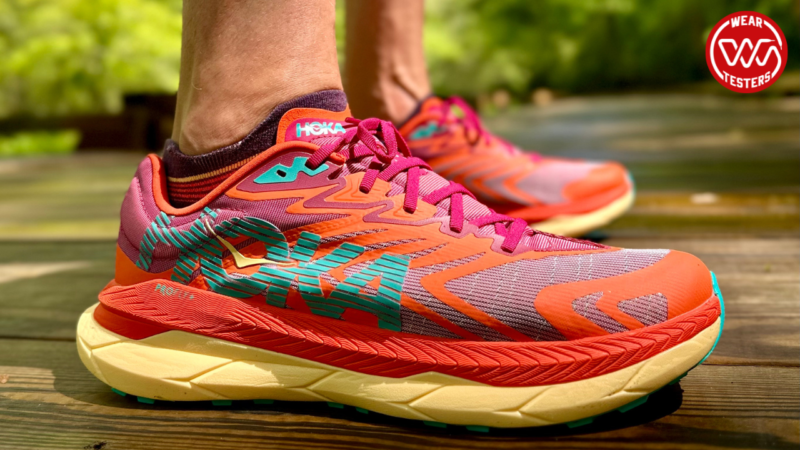
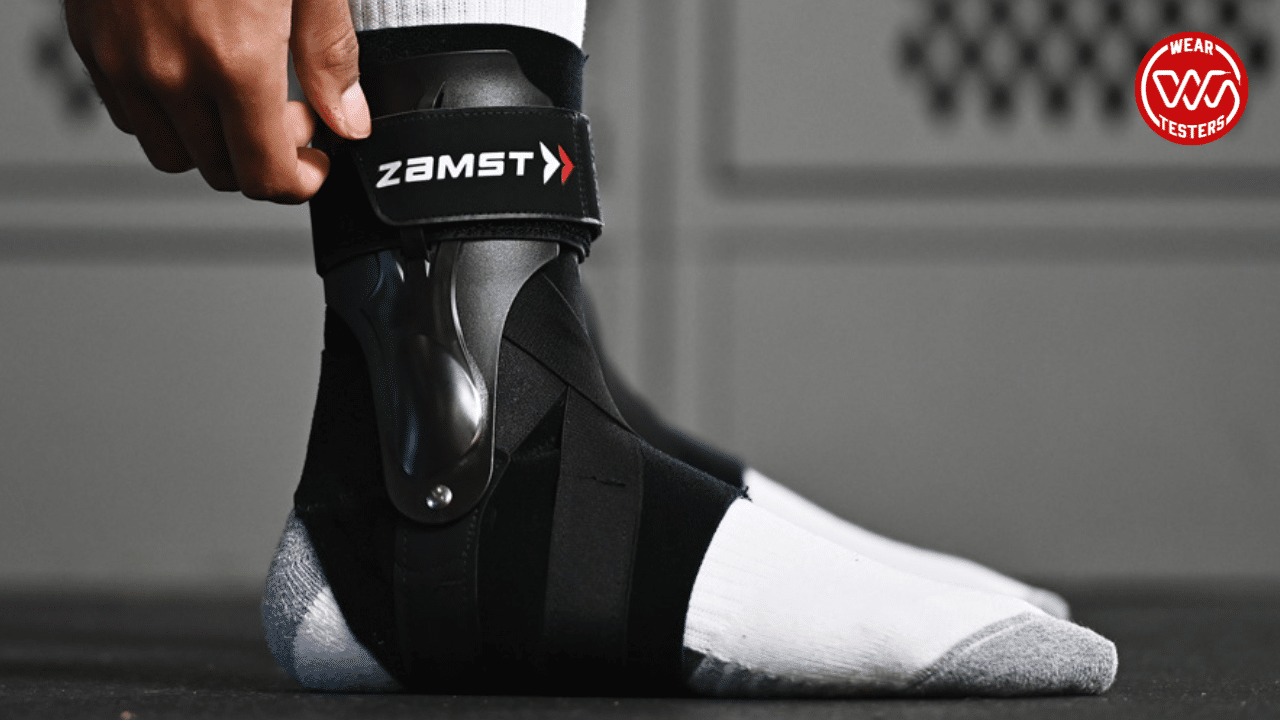
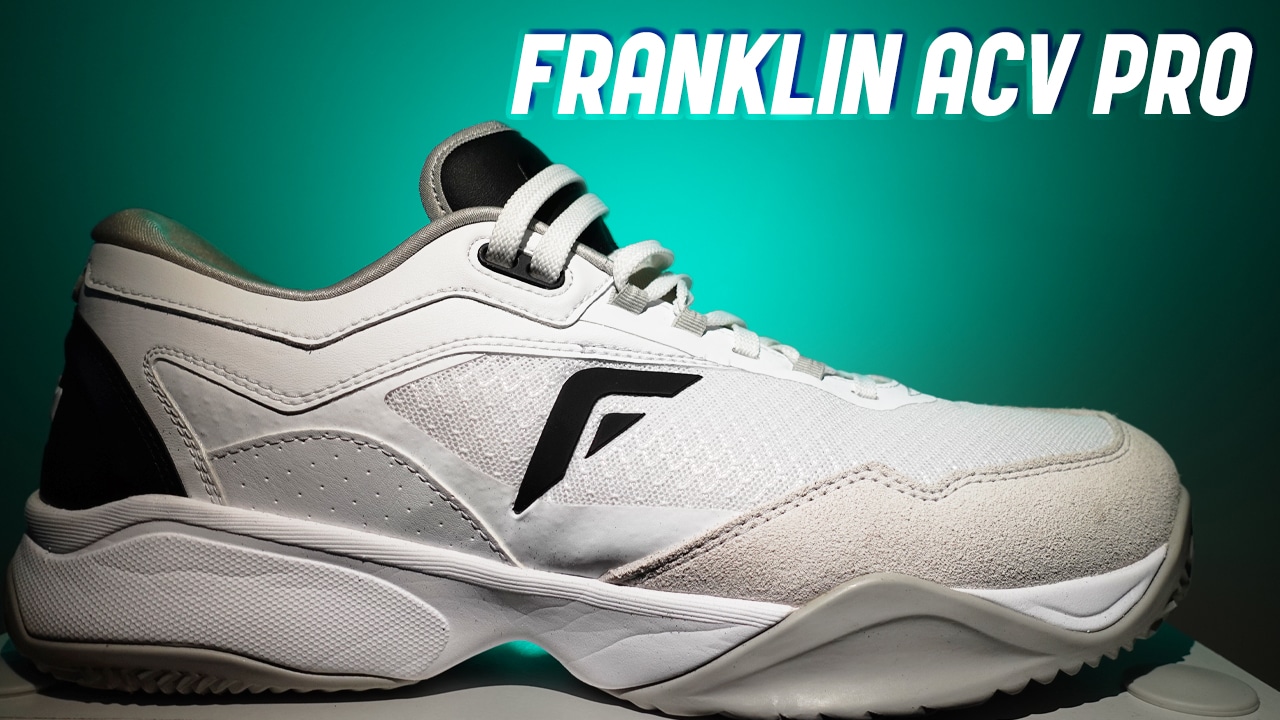
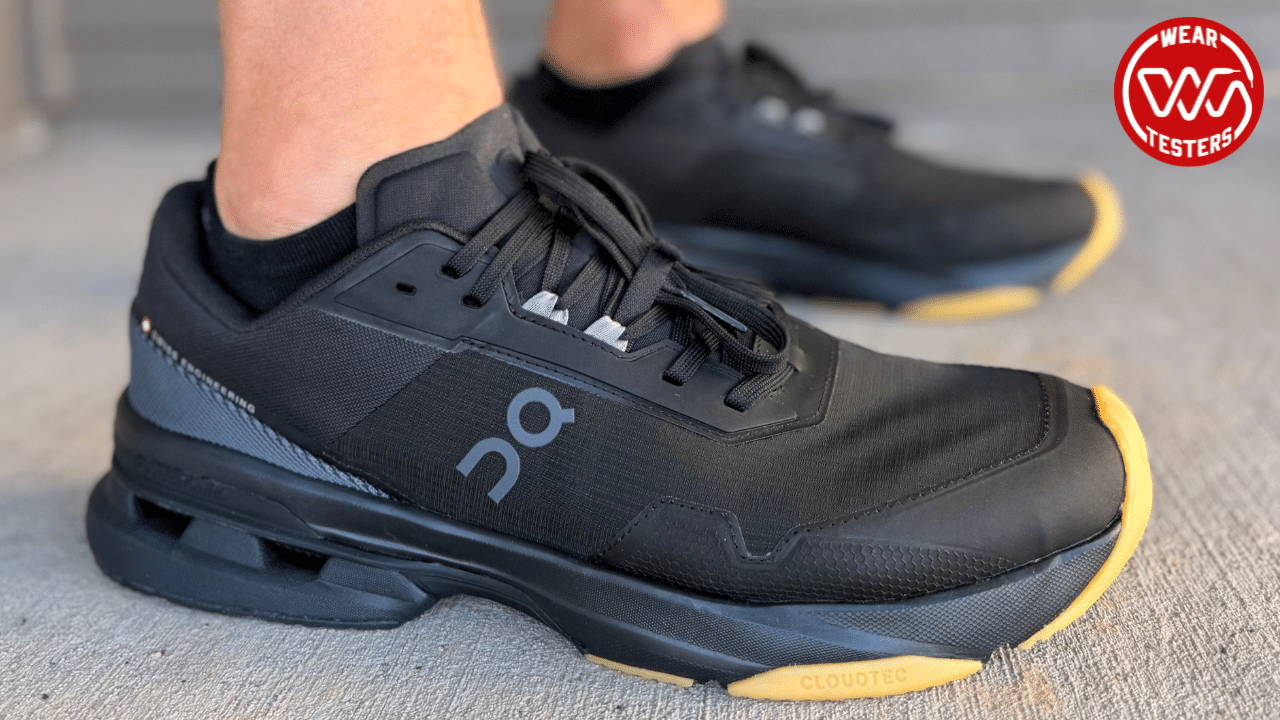
Great summary. Thanks for getting into the technicalities.